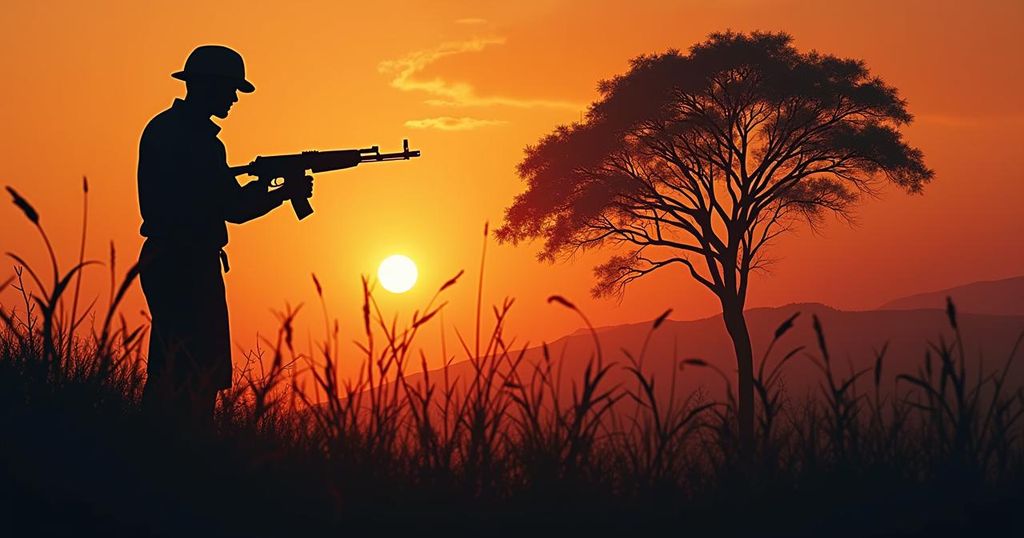Russia’s Disinformation Operations in Africa: An Overview of the Russosphère Network
Russosphère is a social media network that promotes anti-Western and pro-Kremlin narratives in Africa, specifically targeting former French colonies. Founded just before the Russian invasion of Ukraine, it gained a substantial following and plays a pivotal role in fostering distrust towards the West. The network’s organizer, Luc Michel, emphasizes local grievances against colonial powers as a driver of Russian sentiment in Africa, while Western nations face challenges in countering this phenomenon.
In recent years, Russian influence has increasingly permeated certain regions of Africa through the dissemination of misinformation, specifically via a social media network known as Russosphère. This platform, primarily active across major social media avenues, promotes anti-Western and pro-Kremlin narratives, particularly targeting former French colonies. Posts circulating within Russosphère typically accuse France of perpetuating a form of colonialism, laud Russian President Vladimir Putin, and label the Ukrainian military with derogatory terms, portraying them in alignment with extremist ideologies. The emergence of Russosphère can be traced back to its founding in 2021, with its official launch coinciding with the onset of the Russian invasion of Ukraine in February 2022. The network swiftly accrued an impressive following of over 80,000 members, exploiting its unrestricted access to platforms such as Facebook, YouTube, Twitter, Telegram, and VK, especially as Russian state media faced prohibitions from mainstream outlets. The online operation has been noted to play a significant role in sowing distrust between African nations and Western powers, thereby amplifying pro-Russian sentiment within these societies. Investigators, including experts from the technology organization Logically, uncovered the identity of Russosphère’s orchestrator, Luc Michel, a Belgian politician with a controversial past reflecting a history of radical political affiliations and support for figures like Muammar Gaddafi. Michel acknowledged his creation of Russosphère while distancing himself from any financial backing from the Kremlin, asserting that his work is funded privately. Notably, he affirmed a clear dissociation from Yevgeny Prigozhin, the head of the Wagner mercenary group. Analysts attribute the rising popularity of pro-Russian narratives in Africa partly to accumulated local grievances against former colonial powers such as France. These sentiments have manifested in various protests and displays of support for Russian policies across several nations, instrumental in recent shifts regarding the presence of French military forces within the Sahel region. Such regional dynamics underscore the growing challenge faced by Western nations in countering the influence of Russian disinformation campaigns. The activities of Russosphère not only reveal the strategic manipulation of public sentiment but also highlight the intricate relationship between digital disinformation and geopolitical shifts. As Russia seeks to solidify its foothold in Africa, the implications for Western diplomacy and security are profound, necessitating an urgent and strategic reassessment of engagement approaches in the region.
The article centers around the implications of Russian disinformation campaigns in Africa, specifically through a social media network named Russosphère. This network serves to propagate anti-Western sentiment while bolstering pro-Russian ideologies, particularly in former French colonies. Given the historical context of colonialism and ongoing tensions between African nations and Western powers, the disinformation propagated through Russosphère has sparked significant shifts in public opinion and political actions across the continent.
In conclusion, the influence of the Russosphère network exemplifies a strategic shift in disinformation tactics utilized by Russia to expand its reach within Africa. The propagation of anti-Western narratives, coupled with the critique of France and promotion of Russian military resources, is driving a notable change in sentiments throughout the continent. Russian efforts have successfully instigated movements that challenge Western presence and influence in the region, posing significant concerns for international diplomatic relations and security frameworks.
Original Source: www.bbc.com




Post Comment